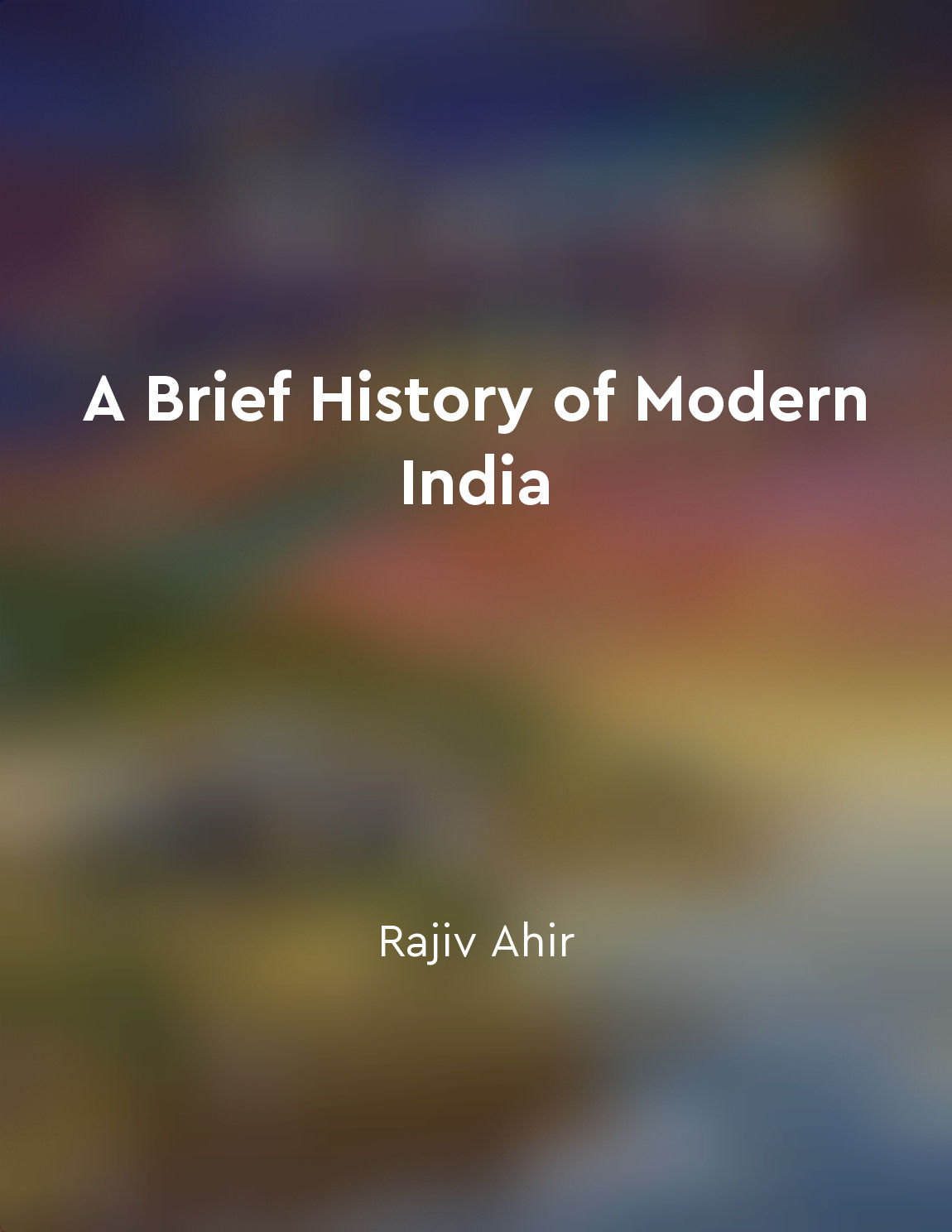Audio available in app
Indian nationalism emerges from "summary" of India's Struggle for Independence by Bipan Chandra,Mridula Mukherjee,Aditya Mukherjee,K N Panikkar,Sucheta Mahajan
The concept of Indian nationalism emerges during the late 19th and early 20th centuries. This period saw the birth of a collective identity among the people of India, transcending regional, linguistic, and religious differences. The sense of being Indian began to take root, fueled by a growing awareness of the shared history, culture, and aspirations of the people living on the subcontinent. One of the key factors that contributed to the emergence of Indian nationalism was the impact of British colonial rule. The exploitative policies of the British, such as the imposition of heavy taxes, the destruction of traditional industries, and the suppression of local customs and traditions, created a sense of resentment among the Indian population. This resentment gradually evolved into a feeling of unity and solidarity against a common oppressor. Another important factor that played a role in the rise of Indian nationalism was the spread of education and the growth of a modern middle class. The spread of Western education introduced Indian students to Enlightenment ideas of liberty, equality, and fraternity, inspiring them to fight for their rights and freedoms. The emergence of a modern middle class, comprising lawyers, teachers, journalists, and other professionals, provided a strong foundation for the nationalist movement. The Indian National Congress, founded in 1885, became the primary platform for the expression of Indian nationalist sentiments. Initially a moderate and elitist organization, the Congress gradually evolved into a mass movement, representing the aspirations of the Indian people for self-rule and independence. Through its annual sessions, petitions, resolutions, and agitations, the Congress mobilized public opinion and built a broad-based coalition of nationalists from different regions and communities. The early nationalist leaders, such as Dadabhai Naoroji, Gopal Krishna Gokhale, Bal Gangadhar Tilak, and Annie Besant, played a crucial role in articulating the demands of the Indian people and challenging the legitimacy of British rule. They used a variety of means, including speeches, writings, newspapers, and public meetings, to raise awareness about the injustices of colonial rule and to galvanize support for the nationalist cause.- The concept of Indian nationalism emerged as a response to the oppressive policies of British colonial rule, the spread of education and the growth of a modern middle class, and the efforts of early nationalist leaders to articulate the aspirations of the Indian people. This period marked the beginning of a long and arduous struggle for independence, characterized by unity, diversity, and a shared commitment to the ideals of freedom
Similar Posts
British colonial rule brought significant changes to South Asia
British colonial rule in South Asia had a profound impact on the social, economic, and political landscape of the region. The B...
Noncooperation movements
The Noncooperation movements were a significant aspect of India's struggle for independence. These movements aimed to challenge...
Independence brought about challenges of nationbuilding and identity
Independence from colonial rule in 1947 marked a significant turning point in the history of India. The newfound freedom brough...

Mumbai terror attacks in 2008
The Mumbai terror attacks in 2008 were a series of coordinated terrorist attacks that took place in Mumbai, India, over a perio...

Bofors scandal and corruption in politics
The Bofors scandal emerged as a significant episode in the realm of Indian politics during the late 1980s. It involved allegati...
Partition of India led to the creation of Pakistan
The partition of India in 1947 resulted in the creation of Pakistan. This significant event in the history of India marked the ...
Famines and poverty
In the early 19th century, famine was a constant specter hanging over the Indian subcontinent. The British East India Company's...

